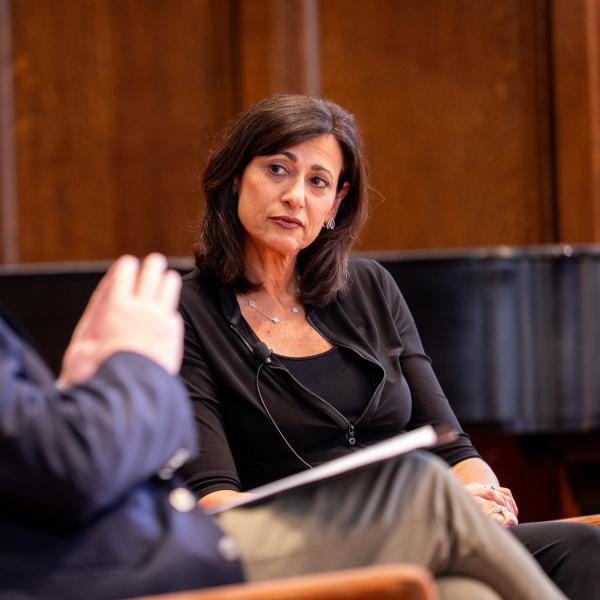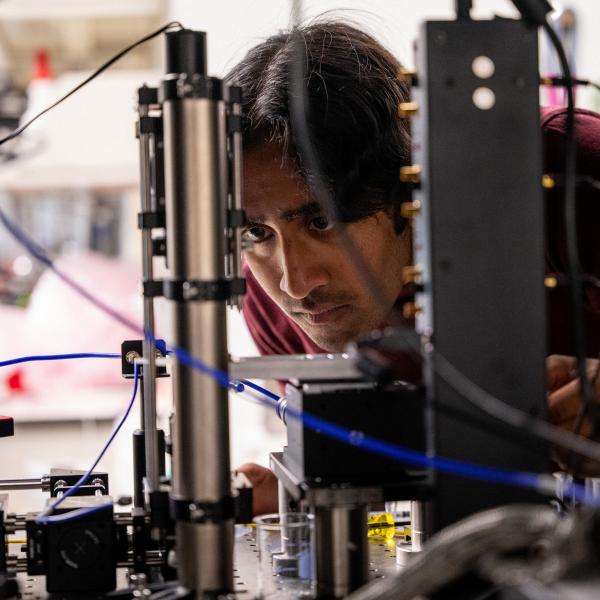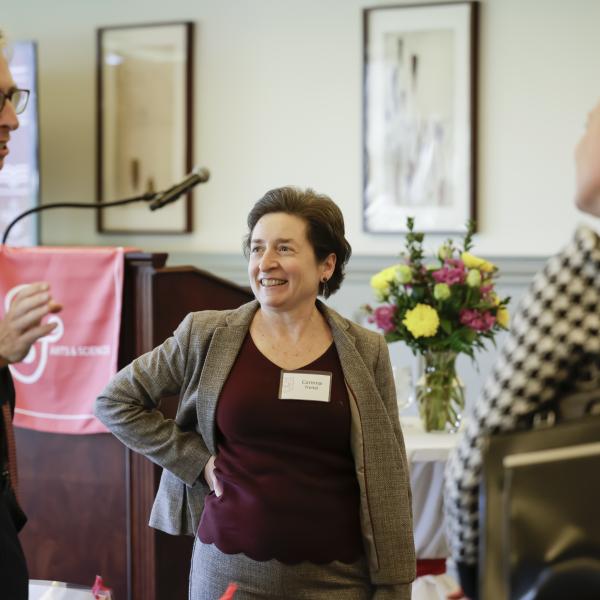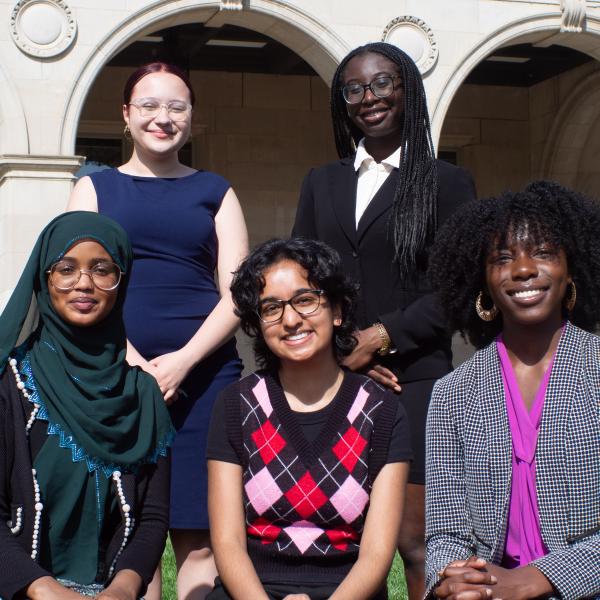The medal, which recognizes career-long contributions to planetary science, is inscribed with the Shakespearean quote, “And he will make the face of heaven so fine, that all the world will be in love with the night.”
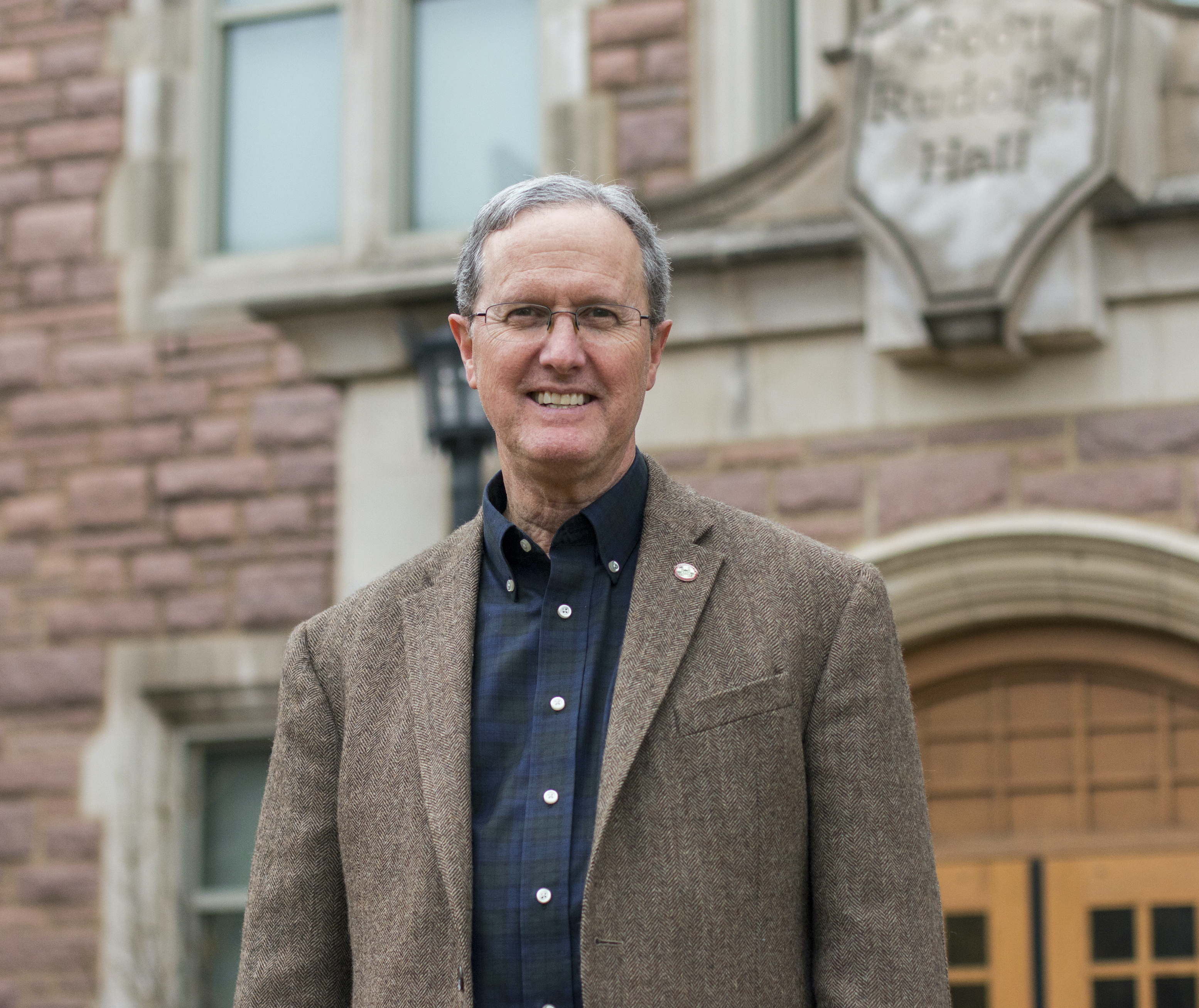
Bradley Jolliff, Scott Rudolph Professor of Earth and Planetary Sciences and director of the McDonnell Center for the Space Sciences, has been awarded the 2020 Eugene Shoemaker Distinguished Scientist Medal by NASA’s Solar System Exploration Research Virtual Institute (SSERVI). Named after American geologist Eugene Shoemaker, one of the founders of planetary science, the award recognizes Jolliff’s significant contributions to planetary science throughout his career.
Jolliff's research activities focus on the study of minerals and rocks of the Earth, Moon, Mars, and meteorites, and what they reveal about conditions of formation and planetary processes over the past 4.5 billion years. Jolliff leads the Planetary Materials Research Group in the Department of Earth and Planetary Sciences, where he has worked on numerous projects, including over 30 years of study of Apollo samples and lunar meteorites, coupling sample information with remote sensing of the Moon; participation in the Mars Exploration Rover missions and study of terrestrial geologic analogues; and participation in the Lunar Reconnaissance Orbiter Camera science team. He has also served as principal investigator for the MoonRise New Frontiers mission proposal to return samples from the Moon’s far side and for the JEDI Discovery mission proposal to send a rover to the south pole of the Moon. He currently serves as institutional lead investigator for Washington University’s participation in NASA’s Apollo Next Generation Sample Analysis (ANGSA) program, and he is a member of the Interdisciplinary Consortium for Evaluating Volatile Origins (ICE Five-O) team.
In addition to his groundbreaking research, Jolliff is highly regarded as a collaborator, mentor, and teacher.
“The real reward of doing science is not the great research you do or the discoveries you make,” Jolliff said. “It’s the people you are fortunate enough to meet and to work with, and to call friends and colleagues.”
